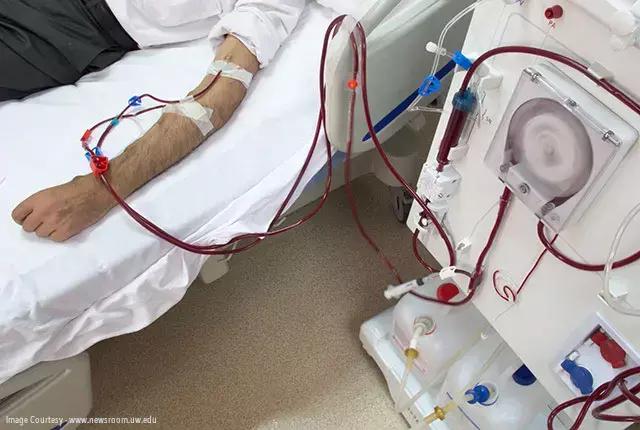Lisboa, Portugal: Study on Zinc Intake in Hemodialysis Patients
A recent study in the Journal of Renal Nutrition showed a high prevalence of hemodialysis (HD) patients having inadequate zinc intake. This is related to higher mortality risk and worse nutritional and body composition parameters.
Zinc, a trace element, is essential for human nutrition and plays an important part in hemodialysis patients. Considering the key importance of an adequate zinc intake, and the lack of studies evaluating the relationship between its consumption and survival in HD patients, Cristina Garagarza, Nutrition Department, Nephrocare, Lisboa, Portugal, and colleagues aimed to analyze the relationship between zinc intake and mortality in HD patients.
For this purpose, the researchers conducted a longitudinal, prospective, multicenter study consisting of 582 HD patients from 37 dialysis centers. They recorded clinical and body composition parameters. Using the Food Frequency Questionnaire and International Physical Activity Questionnaire, dietary intake and physical activity data were obtained.
The mean age of the patients was 67.8 ± 17.7 years and median HD vintage was 65 months.
Study's Salient Findings
- About 53.6% of the patients presented a deficient daily intake of zinc.
- Patients with the highest zinc intake were those who had a higher lean tissue index, energy, and protein intakes.
- Zinc intake was positively correlated with energy and protein intake and negatively correlated with the malnutrition screening tool score.
- Higher energy, protein, and lower carbohydrates intake, as well as lower HD vintage and higher lean tissue index, were predictors of zinc intake.
- Higher mortality risk was observed in patients with zinc intake below the recommended values, even after the adjustment for age, presence of diabetes, gender, dialysis vintage, albumin, lean tissue index, energy intake/kilogram, and level of physical activity.
"Our results showed a high prevalence of HD patients with an inadequate zinc intake, which is associated with worst nutritional and body composition parameters and with a higher mortality risk," wrote the authors. "Food sources that most contribute to increase zinc consumption are also rich in protein, that also an extremely important nutrient for these patients."
Reference
The study titled, "Zinc Deficient Intake in Hemodialysis Patients: A Path to a High Mortality Risk," was published in the Journal of Renal Nutrition.



0 Comments
Post a comment
No comments yet. Be the first to comment!